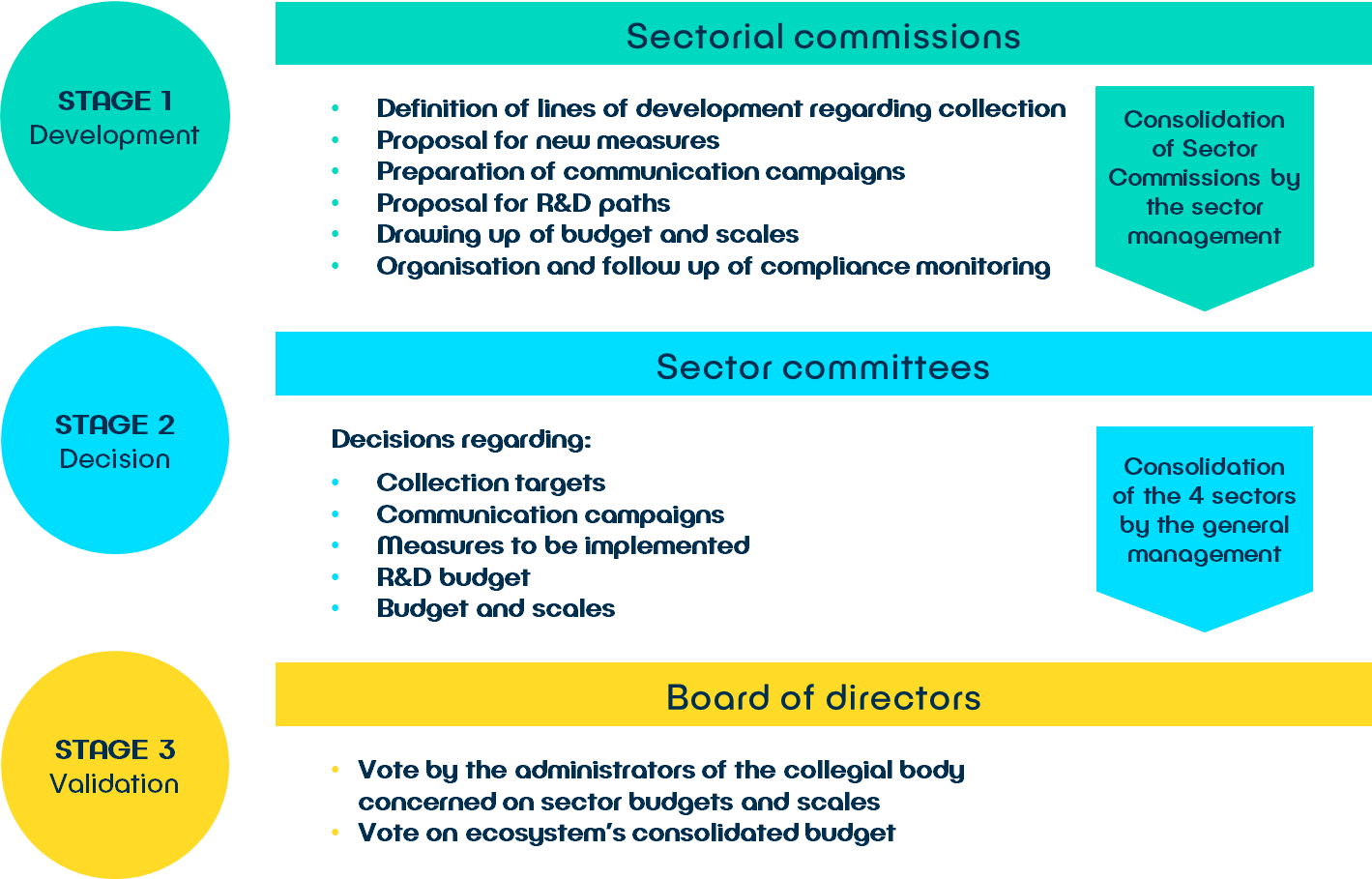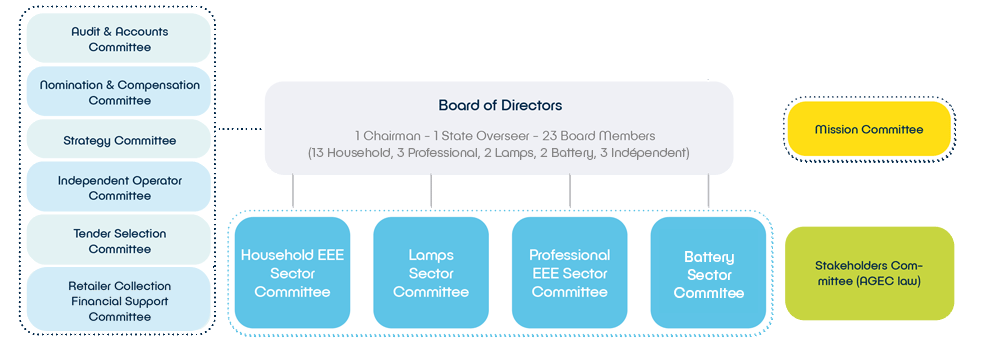Governance

ecosystem is a private company of general interest owned by 41 companies responsible through the Extended Producer Responsibility (EPR) system for managing the end-of-service life of electrical and electronic equipment that they manufacture or sell.
Under this obligation, these companies or producers are responsible for financing, organising and implementing appropriate solutions to repair, collect, reuse, or recycle their products.
The philosophy of our governance
Our governance is based on an equilibrium between two guiding principles:
- Producer independence and the guarantee of their decision-making power for their respective areas of business.
- A desire for cohesion of the entire sector, particularly in terms of financial equilibrium.
Since the launch of the system in 2006, our method is based on making joint decisions with all stakeholders: members, collection partners, associations, public authorities, etc. with the aim of achieving full or broad consensus. The choice to co-build makes for the effective implementation of decisions made upstream.
Producer commitment in ecosystem’s governance
Our governance bodies allow producers to be fully involved at all levels of decision-making, both upstream and downstream to projects:
- Definition of objectives (in terms of collection, R&D, communication campaigns, etc.)
- Participation in defining the resources to be deployed
- Validation of the budget

Strong and involved governance
Since 1 July 2024, Corepile has been a wholly-owned subsidiary of ecosystem. Our authority approval covers several categories of equipment, organised in 4 groups:
- Professional electric and electronic equipment (EEE)
- Household EEE,
- Lamps,
- Battery.
Each activity is organised as a self-governing group that can make decisions about its activity within the scope of Operational Sector Committees.
Governance structure
Governance is structured around a 23-member Board of Directors, 4 permanent cross-disciplinary committees and 4 sector-based committees. In 2023 three temporary committees were created in response to specific stakes: 1 Chairmanship Selection Committee, 1 Tender Selection Committee and 1 Retailer Collection Financial Support Committee. All these bodies ensure the coherence of the whole, whilst finely managing the different business sectors. In addition, ecosystem benefits from a Stakeholders Committee as required by the French AGEC Law and, since 2022, a Mission Committee.

Operational Sector Committees
The Sector Committees, one per activity, are exclusively comprised of producer representatives. They define and implement a strategy for their own business activity. They provide information to the Board of Directors and its decision-making committees.
In Sector Committee meetings, decisions are only made if there is broad consensus. For internal teams this not only guarantees clear orders and the provision of resources necessary to implement them, but also ensures easier transfer within the companies themselves.
4 additional cross-disciplinary committees
The cross-disciplinary committees study and analyse recommendations with a view to decision-making by the sector committees and the Board of Directors.
- Audit & Accounts Committee,
- Strategy Committee,
- Nominations and Compensation Committee,
- Independent Operator Committee
A Stakeholder Committee
Established by the French AGEC Law in 2020 this comprises producers, waste prevention and management operators, local authorities, etc., and is called upon by ecosystem for its views and opinion on certain issues.
See the opinions issued by the Stakeholder Committee (in French):